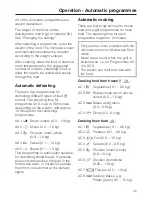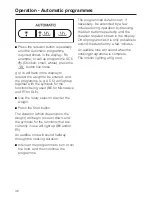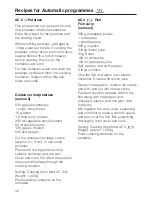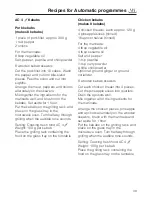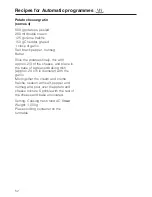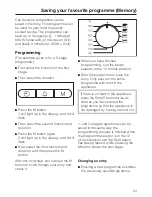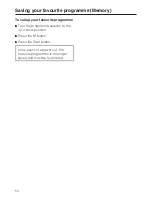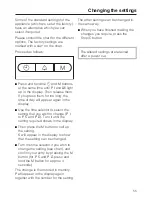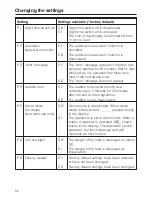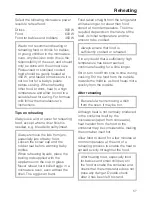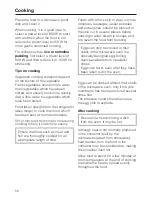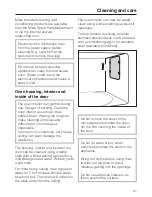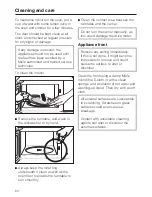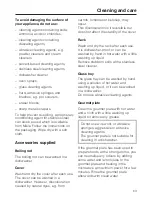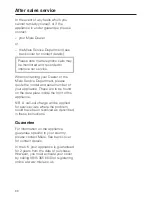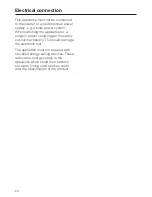
Select the following microwave power
levels to reheat food:
Drinks . . . . . . . . . . . . . . . . . . . . . 900 W
Food . . . . . . . . . . . . . . . . . . . . . . 600 W
Food for babies and toddlers . . . 450 W
We do not recommend heating or
reheating food or drinks for babies
or young children in the microwave
oven. Any decision to do this is the
responsibility of the user, and should
only be done with the utmost care.
Pasteurised or sterilised cooked
food should be gently heated at
450 W, and tasted to make sure it is
not too hot for a baby's palate
before serving. When reheating
other food or drink, heat to a high
temperature and allow to cool to a
suitable heat for eating. For formula
milk follow the manufacturer's
instructions.
Tips on reheating
Always use a lid or cover for reheating
food, except when a drier finish is
needed, e.g. breaded poultry/meat.
Always remove the lids from jars,
especially jars of baby food.
Loosen the screw cap and the
rubber teat before warming baby
bottles.
When reheating liquids, place the
boiling rod supplied with the
appliance into the cup or glass.
Never reheat hard boiled eggs in a
microwave oven, even without the
shell. The eggs can burst.
Food taken straight from the refrigerator
will take longer to reheat than food
stored at room temperature. The time
required depends on the nature of the
food, its initial temperature and the
amount to be cooked.
Always ensure that food is
sufficiently cooked or reheated.
If in any doubt that a sufficiently high
temperature has been reached,
continue reheating for a little longer.
Stir or turn food from time to time during
cooking. Stir the food from the outside
towards the middle, as food heats more
quickly from the outside.
After reheating
Be careful when removing a dish
from the oven. It may be hot.
Although heat is not normally produced
in the container itself by the
microwaves (apart from stoneware),
heat transfer from the food to the
container may be considerable, making
the container itself hot.
Allow food to stand for a few minutes at
room temperature at the end of a
reheating process to enable the heat to
spread evenly throughout the food.
After heating food, especially food
for babies and small children, stir
the food or shake the container and
check that the temperature does not
pose any danger. Double check
after it has been left to stand.
Reheating
57
Summary of Contents for M 8201-1
Page 70: ...70 ...
Page 71: ...71 ...
Page 72: ...Alteration rights reserved 3912 M 8201 1 M Nr 09 472 770 01 ...



